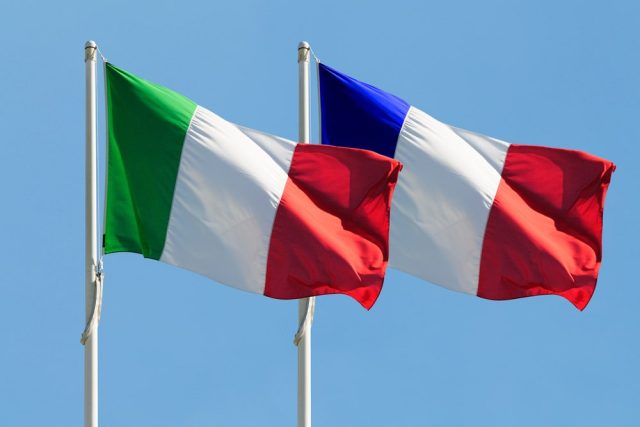
More than two years after the start of the Meloni government, the first official bilateral summit between the Italian Prime Minister and French President Emmanuel Macron finally took place on 3 June, marking a significant milestone in Franco-Italian diplomatic relations. Up to that point, contacts between the two leaders had been limited to informal occasions, reflecting a prolonged phase of political distancing that often resulted in real friction. The meeting was therefore interpreted as an attempt to overcome the tensions of the recent past. The initiative, according to French sources, was promoted by Macron himself, with the aim of relaunching bilateral dialogue. At the end of the summit, a new meeting was also announced to be held in France in 2026, a sign of a progressive normalization of relations.
PRECEDENTS AND DIVERGENCES
Since the start of the Meloni government, relations between Italy and France have deteriorated, marked by frequent public friction, strategic divergences within the EU and a cooling of bilateral cooperation. The first critical episode dates back to November 2022, when Italy’s refusal to welcome the Ocean Viking ship prompted French Minister Darmanin to define the government’s position as “unacceptable” and to suspend the redistribution of refugees. This marked a break in traditional collaboration on migrants. In the meantime, Italy has taken a more assertive line in Europe, with the Mattei Plan and a central role in the reform of the EU Pact on Immigration, arousing the distrust of Paris. Misunderstandings have worsened with exclusionary diplomatic choices, such as the Macron-Scholz-Zelensky meeting at the Elysée (February 2023), which irritated Rome for the exclusion. Also in 2023, French criticism became harsher, with accusations against Italian politics defined as “inhuman” by Macron’s party, while Meloni responded by attributing the tensions to internal calculations linked to the challenge with Le Pen. Despite episodes of technical cooperation, the confrontation reached its peak at the G7 in June 2024, when the reference to abortion in the final document was seen by Italy as an instrumentalization for French electoral purposes. Positions also diverge on international dossiers: Rome distanced itself from the “willing” for sending troops to Ukraine, arousing the ire of Macron, who accused Meloni of spreading “fake news”. The relationship between the two countries has therefore become structurally conflictual in recent years, marked by ideological differences and unilateral choices, with little convergence on a common vision for Europe.
THE TOPICS OF THE BILATERAL MEETING
During the summit, numerous issues of economic, industrial and international relevance were addressed. In areas such as competitiveness, industrial policy, energy transition and cooperation in the steel and automotive sectors, substantial convergence emerged. However, divergences remain on strategic issues, particularly regarding European security, support for Ukraine and the management of the peace process. President Macron reiterated his support for the “coalition of the willing”, while Italy expressed reservations, preferring multilateral approaches that are less operationally exposed. Nonetheless, the joint statement reaffirmed unconditional support for Ukraine, as well as the desire to strengthen European defence on an industrial and technological level. Transatlantic relations and the crisis in the Middle East were also discussed. There were marked differences on the Israeli-Palestinian conflict: while Macron reiterated his commitment to the “two peoples, two states” solution and a possible recognition of Palestine, the Italian position was more cautious, subordinating any decision to possible US support. In short, the summit represented a significant attempt to relaunch bilateral relations, which have so far been conditioned by ideological frictions and strategic divergences. Despite persistent disagreements, the dialogue initiated signals a shared desire to strengthen cooperation on key issues for the stability of the European Union, opening the possibility of an evolution towards greater political convergence.



 Subscribe
Subscribe